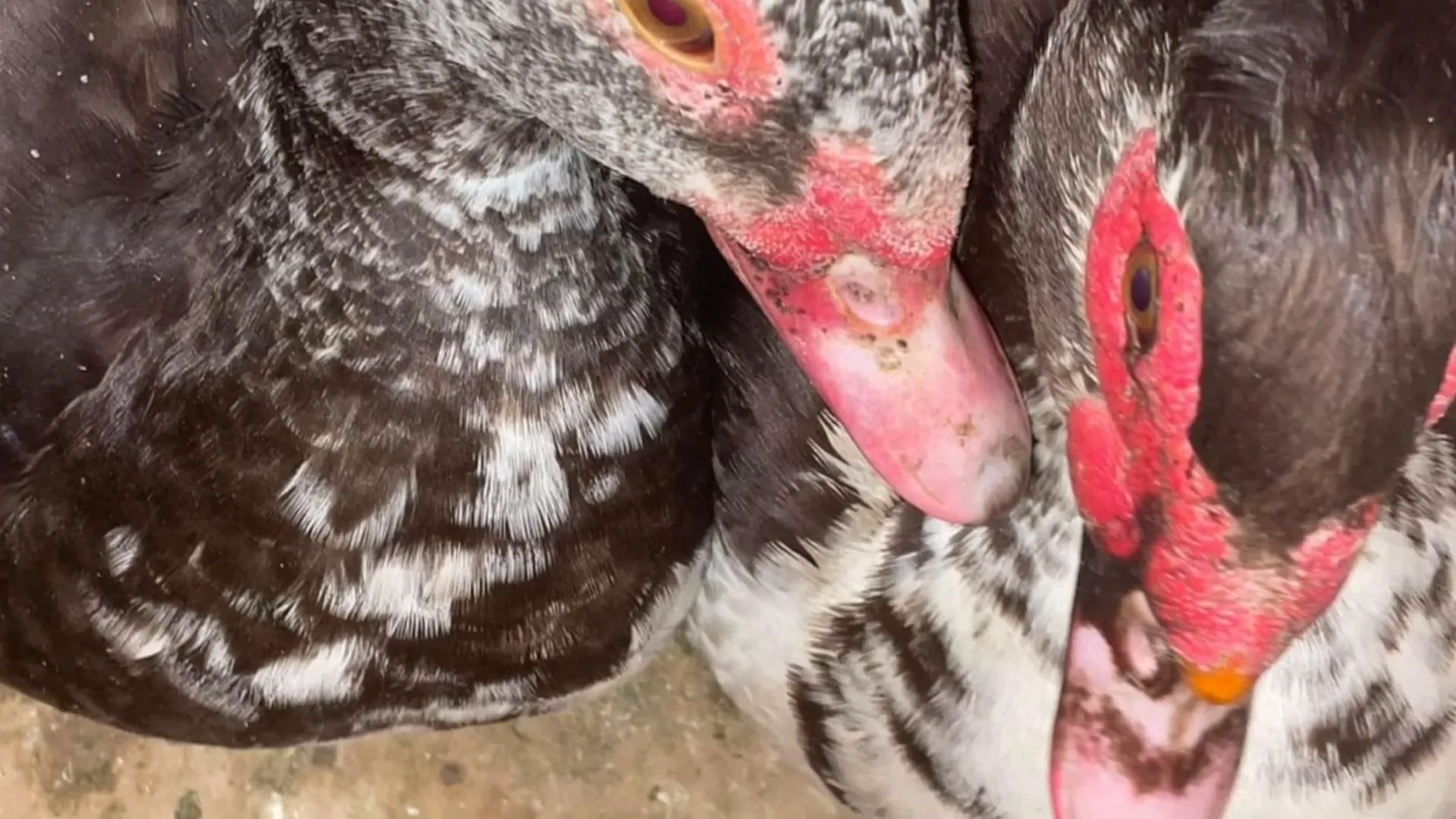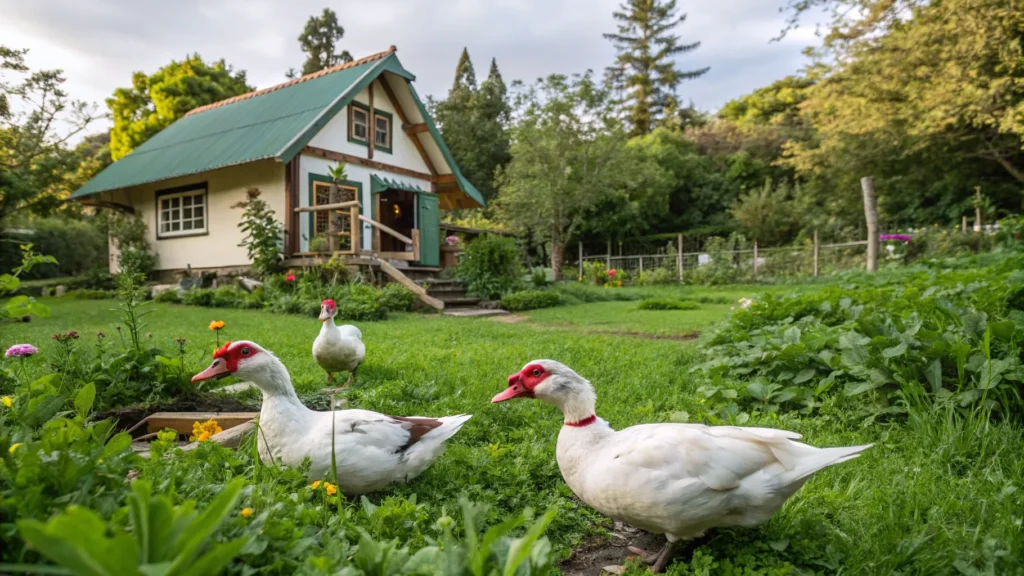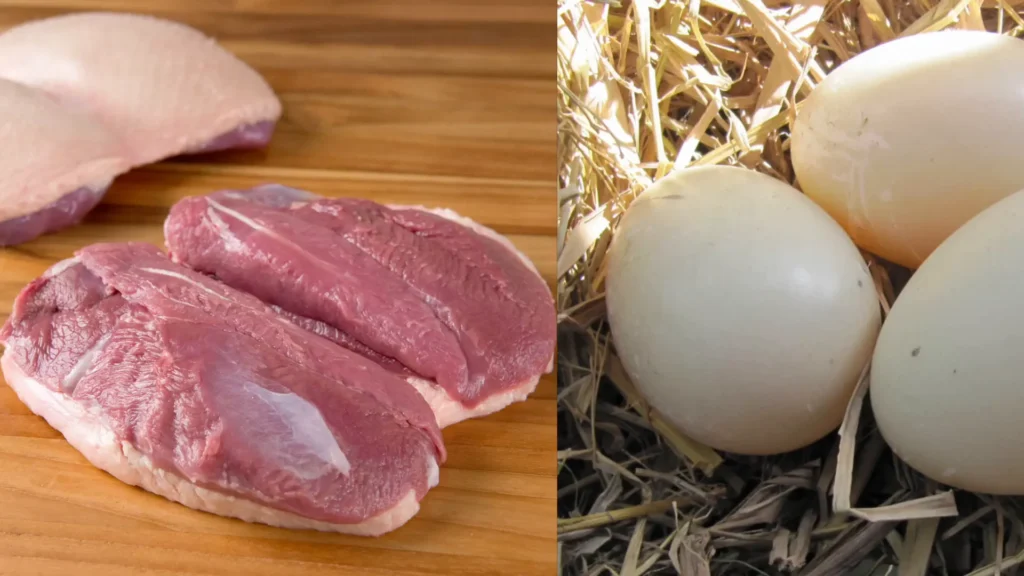If you’ve ever seen a Muscovy duck in person, you probably did a double take.
With their strange, bumpy faces and big bodies, they don’t even look like ducks—and honestly, they aren’t. But that’s part of what makes them so fascinating.
I brought home a pair from the sale barn and thought I knew what I was doing. I didn’t. Not even a little.
So today, I’m breaking down everything I’ve learned about raising Muscovy ducks—the good, the bad, and the semi-viral Facebook disaster—so you can decide if these birds belong on your homestead.
What Are Muscovy Ducks?
Fun fact: Muscovies aren’t actually ducks. Unlike most duck breeds, which come from the mallard line, Muscovies are closer to geese.
They’re large, warty-faced, and totally unforgettable. If you’re used to Pekins or Runners, these birds are in a class of their own.
What Can You Use Muscovies For?
Muscovies are a dual-purpose bird:
- Meat – Their most popular use
- Eggs – Not as common, but possible
- Pest control – They eat bugs and love kitchen scraps
- Manure – Great for your garden
- Sales – These birds sell for $30+ each at local auctions
They’re also prolific breeders, which means more ducklings… fast.
What Does Muscovy Meat Taste Like?
It. Is. Incredible.
Muscovy meat is a red meat that tastes more like steak than poultry. I personally like it better than steak.
You’ll get:
- ~4 lbs of meat from a hen
- ~7 lbs from a drake
If you try to buy it online, expect to pay $45+ per bird—so it’s worth raising your own.
Let me know in the comments if you want recipes! We’ve tried all kinds of preparations and haven’t had a bad one yet.
How Fast Do Muscovy Ducks Multiply?
Let me put it this way: They breed like rabbits.
Each hen can:
- Hatch 3–4 clutches per year
- Lay ~28 eggs per clutch
- Produce 80+ ducklings per year
It only takes 35 days to hatch and about 3–4 months until they’re ready for butchering.
Have a plan for those babies—whether that’s meat, sales, or both.
Setting Up Their Coop and Run
Here’s what you’ll need:
- Indoor space: 4 sq. ft. per duck
- Outdoor space: 16 sq. ft. per duck
- Nesting boxes: One per hen if you’re letting them hatch
They don’t usually use roosts (they prefer the ground), but a few might appreciate a shelf. They’ll need water to play in and a place that keeps them safe—especially from flying away.
Speaking of flying…
Are They Easy to Keep?
Yes—but you’ll need to plan ahead.
- They fly. Clip their wings or use netting. Even clipped, they can still get some air.
- They escape. Don’t chase them or they’ll keep flying. If left alone, they’ll usually come back.
- They’re quiet. No loud quacks. Just tail wags and gentle huffs.
- They’re great moms. No need to babysit their ducklings.
My infamous Facebook moment happened when Linda, one of my ducks, flew away and became a local mystery bird. The whole town was trying to ID my “goose-duck-chicken-turkey” hybrid. Lesson learned.
Do YOU Need Muscovy Ducks? A Quick Litmus Test
If you’re thinking of getting Muscovies, ask yourself:
- Do you want meat birds that reproduce on their own?
- Are you okay feeding them through the winter (they don’t lay year-round)?
- Do you have space for all their future babies?
- Are they legal in your area? (They’re considered invasive in some places.)
- Are you willing to invest in fencing or clipping wings?
If you’re just starting out with chickens or haven’t raised any poultry yet, Muscovies might be a little much for your first bird.
But if you’re ready to dive in—they’re one of the easiest, most rewarding animals we’ve raised.
Conclusion
Muscovy ducks are a little weird, a little wild, and a lot productive.
They’re low-maintenance, taste amazing, and can fill your freezer or bring in a solid side income. Just be prepared for the breeding… and the flying.
After swearing I’d never get them again, I’m glad I changed my mind. They’ve become a staple on our homestead—and I think you’ll love them too.
What’s Next?
👉 Want to learn more about our homestead animals and systems?
**Watch **this video next where I show you what else we’re raising—and how we’re building a sustainable, family-run farm.





Leave a Reply